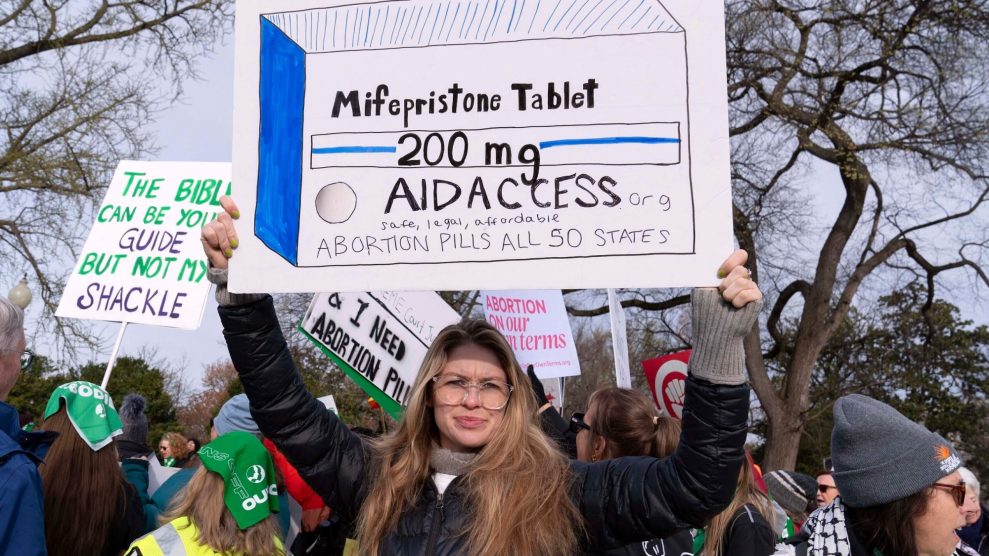Mifepristone, a medication pivotal for abortion access in the United States, marked its 25th anniversary on September 28, 2023, amid heightened scrutiny and efforts to limit its availability. Approved by the Food and Drug Administration (FDA) in 2000, mifepristone has enabled countless individuals to manage their reproductive health privately. However, ongoing political challenges threaten the drug’s future.
Originally sanctioned for use up to seven weeks into pregnancy, the FDA extended mifepristone’s approval to ten weeks in 2016. This change was backed by evidence from the World Health Organization, which asserts that the drug can be safely used throughout the first trimester. Recent actions from the Biden administration have made mifepristone more accessible, allowing remote prescriptions that bypass the need for in-person consultations.
Despite these developments, the political landscape shifted dramatically following the Supreme Court’s ruling in the 2022 Dobbs v. Jackson Women’s Health Organization case, which overturned the long-standing Roe v. Wade precedent. In the aftermath, mifepristone’s role in abortion care has gained importance, with medication abortions now constituting more than 60 percent of all procedures in the United States, according to the Guttmacher Institute.
The increasing reliance on medication abortions highlights a critical shift in reproductive health care. Telehealth services have emerged as a significant avenue for accessing these medications, with one in four abortions now occurring through pills prescribed online. Research from the Society of Family Planning indicates that half of these telehealth abortions were performed under legal protections known as shield laws, which are designed to safeguard providers against legal repercussions in certain states.
In response to this growing reliance on mifepristone, anti-abortion advocates have intensified their efforts to challenge its approval. Their strategy includes disseminating misinformation regarding the drug’s safety and efficacy. Despite more than 100 scientific studies affirming its safety, critics continue to voice concerns. Carrie N. Baker, a professor at Smith College, emphasized that mifepristone is safer than many over-the-counter medications, yet political opposition has historically delayed its approval and continues to fuel ongoing disputes.
Recent developments include an announcement from Health and Human Services Secretary Robert F. Kennedy Jr. and FDA Commissioner Marty Makary, indicating a renewed review of mifepristone following pressure from Republican attorneys general. This review was prompted by a report from the Ethics and Public Policy Center, which claimed to reveal a higher rate of complications associated with the drug. Critics have pointed out several flaws in this report, including a lack of peer review and unclear methodologies.
Despite these challenges, reproductive rights advocates remain resolute. Kelly Baden, vice president of public policy at the Guttmacher Institute, criticized ongoing attempts to restrict access to mifepristone, stating that such actions stem from “shoddy science” and unnecessary regulations. Similarly, Danika Severino Wynn, vice president of care and access at Planned Parenthood Federation of America, reaffirmed that mifepristone is both safe and effective, emphasizing the importance of individual autonomy in healthcare decisions.
In the face of these political pressures, states have enacted various measures to limit access to mifepristone. For instance, Texas recently passed legislation allowing private citizens to sue anyone involved in the distribution or provision of abortion pills, while Louisiana classified mifepristone and misoprostol as controlled substances, potentially impacting other medical treatments as well.
As mifepristone’s 25th birthday arrives, advocates of reproductive rights highlight its transformative role in modern healthcare. Elisa Wells, co-founder of Plan C, described mifepristone as a “transformational and disruptive hero” in the struggle for abortion access, asserting that political barriers will not deter individuals from seeking necessary care.
With ongoing legal battles and legislative efforts aimed at restricting access to mifepristone, the future of this crucial medication remains uncertain. Advocates continue to call for robust protections to ensure that individuals have the freedom to make informed choices about their reproductive health without undue interference.
